Great ballet dancers who boldly turn away from a stellar international career to grow a national ballet company in their homelands are few, but legendary. Alicia Alonso did it in Cuba, Ninette de Valois did it in Britain. And, dancing across the cusp of even more perilous political weather than either, so did the brilliant Bolshoi Ballet star Nina Ananiashvili when 20 years ago she left the world stage to return to her broken and battered native Georgia and generate its own classical ballet company.
This summer London will see the State Ballet of Georgia's British debut, marking a remarkable and politically significant rebirth of ballet on the grand scale in a small country long wracked by civil strife and external political pressures.
For most of the 20th century the beautiful mountainous country on the Black Sea – population well under four million – was a feeder territory milked for talent by the giant Soviet ballet companies of Moscow and Leningrad, the Bolshoi and Kirov troupes. Moscow government employees adored its warm climate and rich folk culture. The glamorous capital Tbilisi was a must-see stop on the international itineraries of all major visitors to the Soviet Union.
But Georgia's own children – like the original male superstar of early Soviet ballet Vakhtang Chabukiani, the genius choreographer of the Ballets Russes and later the USA George Balanchine, and outstanding performers of more recent times such as the Kirov’s Igor Zelensky and the Bolshoi’s Nikolai Tsiskaridze – were all extracted to Moscow or Leningrad to fulfil their superlative gifts.
So too Nina Ananiashvili, who had lived only 12 years in her native land before migrating to the Soviet capital.
As a rising starlet in the ballerina-packed Bolshoi of the Eighties, Ananiashvili became a world star overnight on her own London debut with the Moscow company, greeted with gasps of excitement and pleasure at this wonderful new young ballerina, so brilliant, so delicate and fresh in her emotional connection to the audience. She was lucky that her prodigious early twenties coincided with glasnost, the last Soviet leader Gorbachev’s loosening of communism's draconian constraints on free choice, and she would build an international career while becoming perhaps the Bolshoi’s most recognisable ballerina of her generation.
Meanwhile the collapse of the Soviet Union left Georgia racked by political strife and everyday desperation as it tried to rebuild its nation after the decades of Soviet suppression. Twenty years ago, Ananiashvili, aged only 41, accepted the invitation of the hopeful new president, Mikheil Saakashvili, to raise Georgia's ballet to show worthy of its boundless native talent, fit to stand with the best of the Russian ballet tradition. Earlier this year the State Ballet of Georgia was warmly received on its US debut tour – now it is London's turn to see what this beloved ballerina has achieved against such high odds.
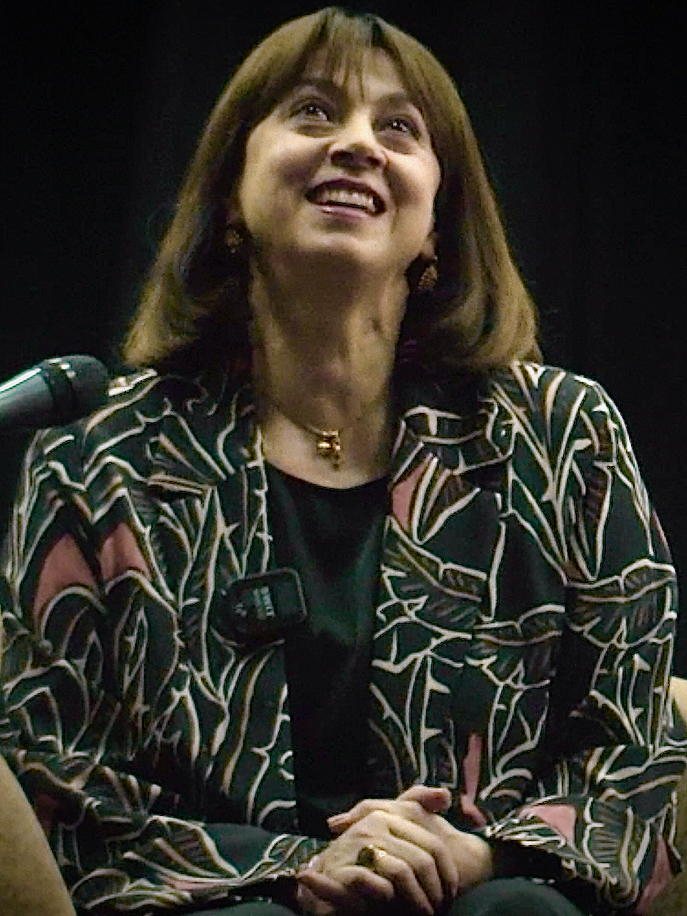 I met Nina Ananiashvili in Tbilisi earlier this year to film an interview with her about her exceptional career and the challenges she has overcome and continues to face, and this is an edited transcript of the interview on YouTube.
I met Nina Ananiashvili in Tbilisi earlier this year to film an interview with her about her exceptional career and the challenges she has overcome and continues to face, and this is an edited transcript of the interview on YouTube.
She became immersed in memories, ranging from her childhood and her heroic grandmother (who gave up her own career to enable young Nina to train in Moscow), to her rocky road to the top of the Bolshoi and the depressing mind games experienced by major ballerinas there. There were revelations about the career she almost had – at the Royal Ballet, Covent Garden, under Kenneth MacMillan.
She also talked frankly about difficult issues, such as a brand-new cultural problem in honestly assessing young dancers for the realities and demands of ballet.
And she addressed another overwhelming new difficulty in today’s politically precarious conditions - the Russian one.
It’s very sad today, because I have a lot of Russian friends and they’re still my friends but they’re locked, they cannot make free choices now
Nina revels in her Georgianness but acknowledges her Russian formation, and she ponders the complicated question of how to express a special Georgian quality in an artform which in that region for so long had been uniquely identified as a Russian cultural product. Georgia’s antipathy to its gigantic neighbour has been consistent and outspoken since the Soviet fall, and the Russian invasion of Ukraine has hugely increased tensions.
Besides, Georgia has long had world fame for dancing - but not for ballet. The confusingly similar title Georgian National Ballet belongs to the athletic folkdancing troupe founded in 1945 and long promoted by the Soviets as a world ambassador for Georgia's national character. Among the film clips included in the interview, we see Nina in both her Bolshoi ballerina guise and dancing Georgian national dance, at one with both. You can reach some of the clips as indicated below.
We began with a brief film medley that I created (not reproducible here) of Nina Ananiashvili in her element, demonstrating her glorious versatility in four different ballets, from the French grace of Pierre Lacotte's The Pharaoh's Daughter and soulful Russian emotion of Raymonda to the dazzling virtuosity of Don Quixote, in which she displays her phenomenal balancing (linked via screenshot right) and awesome fouettés.
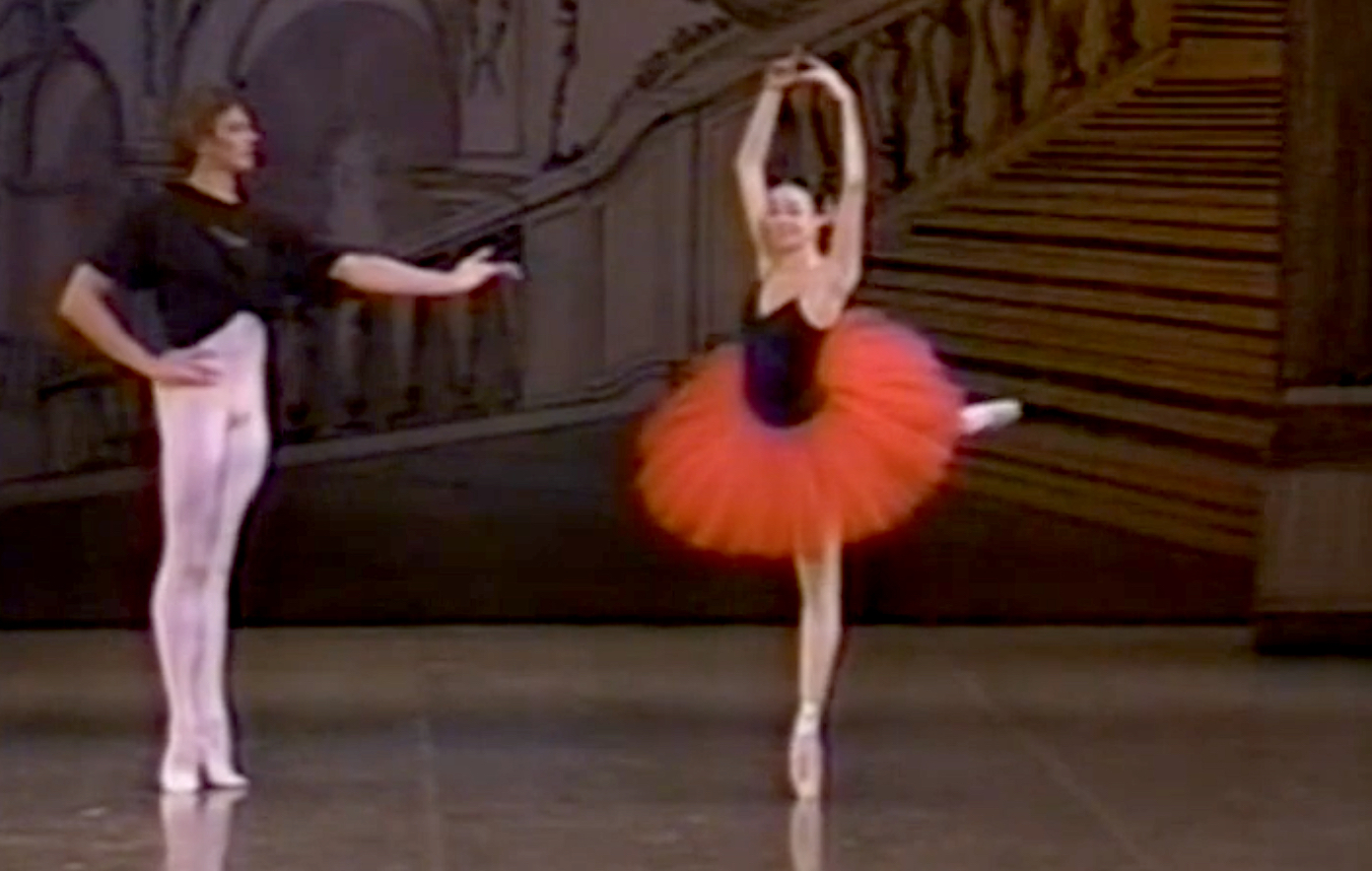 Nina Ananiashvili: That was quick!
Nina Ananiashvili: That was quick!
Ismene Brown: Four ballets in two minutes! In those immense feats of virtuosity you are smiling as if with happiness. Are you actually enjoying them?
Yeah, I always enjoyed doing fouettés. Actually a lot of people mention this to me - how can I smile during fouettés? I think it's that I really learned what I needed to do technically, so that even if your partner isn’t so good you are free and can do whatever you want. So I really do enjoy them.
Do you remember that particular balance? That 12-second balance? It must be one of the longest ever filmed.
But sometimes I have had even better ones! Of course I was always training my balance, but sometimes it works, sometimes it’s not, sometimes you feel okay, sometimes you really want it to but it just doesn’t work. But I remember once in Los Angeles on a tour with the Bolshoi, again I was dancing with Andrei Fadeyechev, and I think I missed a pirouette but I did the dévéloppé, écarté without Andrei and he was ready to give me his hand, and he says, Nina maybe I will just go into the wings because you can dance without me. But nobody filmed it! Thank God they filmed this one.
Let’s start with your childhood. You were born on 19 March 1963 in Tbilisi, the youngest of three children. Was there any dance in your family?
No, not even any artists. My grandmother and grandfather were doctors, mother was a philologist, my father a geologist, and my brother is also a geologist. But though nobody was in the arts my parents friends were artists, painters, they would come to the house and I would always see them. And it was a fantastic period of my life, my childhood with my parents. I was quite lucky because my father would always take me to the opera house from when I was four years old to see some ballet.
It’s important, isn’t it, for children to see ballet young and to realize it’s not something alien that they have to know something about. A lot of adults say about ballet, oh I don’t know anything about it.
Yeah, I always say ballet is a unique art because you don’t need to know any language. You just go and see - either you like it or you don’t like it, that’s it. But a child watching ballet is interesting. Here in Tbilisi I have more time to see these children when they come to ballet, when they’re four, five, six years old. I have special performances on Sundays so they can come, to start recognising oh, I have seen this ballerina, I love this ballerina, or I don’t like this bad guy – they’re very funny. You know sometimes I even listen to them, what they like or what they don’t. Children’s reactions are always pure and wonderful. Sometimes they can’t say what they think, but they clap just because they saw something beautiful. And I think it’s really necessary for mothers and fathers to take children to performances – later they can decide for themselves if they like it or not, but that first step is important.
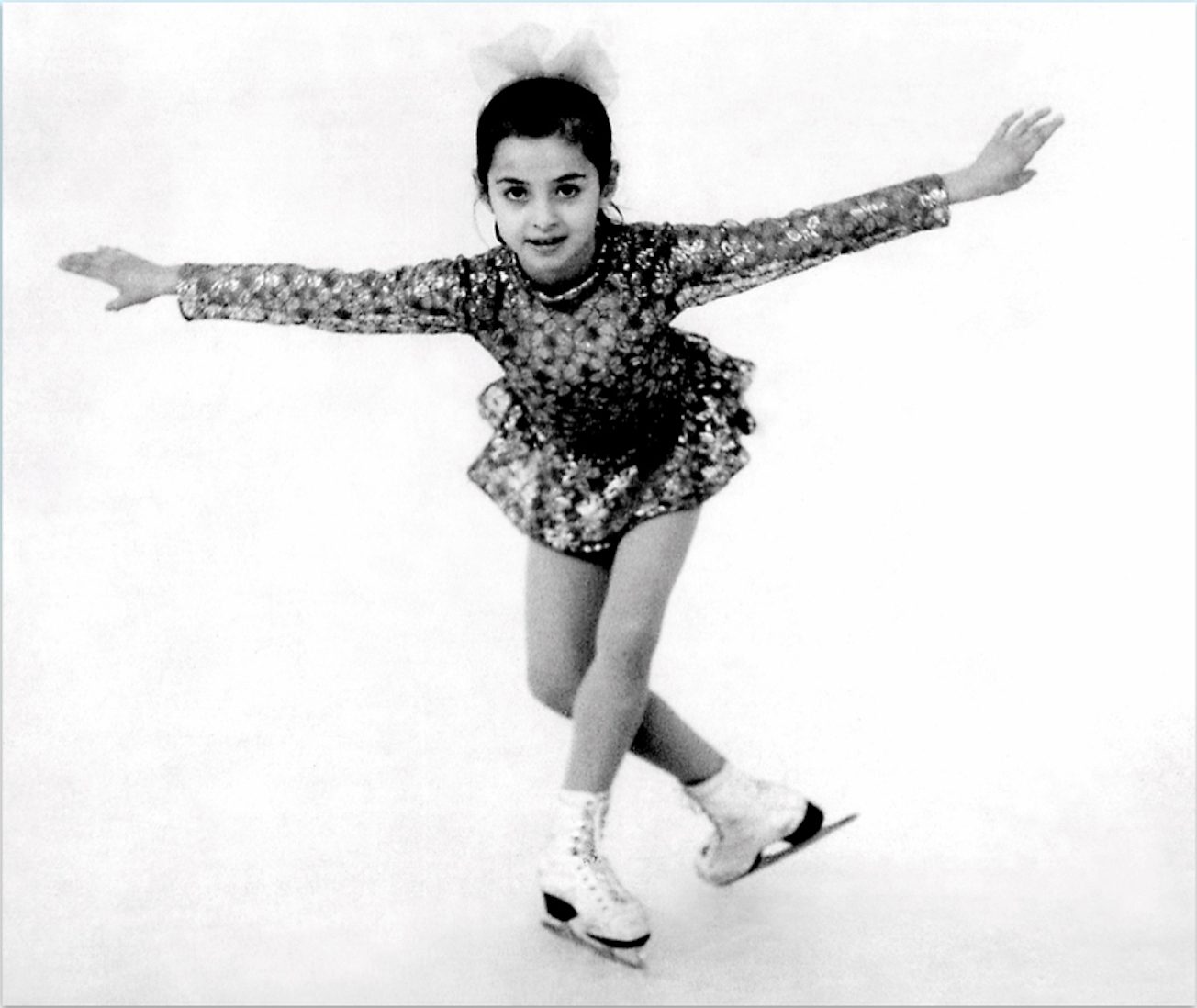
You in fact started as a young ice-skating champion? Did you think of making a career on the ice?
I wasn’t thinking about being champion. It was just my mother took me to an ice school because I was always sick, I had a throat problem and I was always coughing. One of my mother’s friends said skating is wonderful for the health because the cold makes children stronger, and my friends were already going there and I really enjoyed being with them. So then you know slowly, slowly I made some little progress (pictured left: from Nina's personal file).
But you know it’s still the same now after many years that we have fantastic talented children but they can’t develop much because they don’t have an ice rink, and they had to go to Moscow or nothing. And not everybody can live in Moscow so so a lot of them finished their careers very very early.
In another life you’d have been skating for Georgia at the Olympics!
I think not because my legs are too long, which isn’t so great on the ice.
How good is ice-skating as a preparation for ballet?
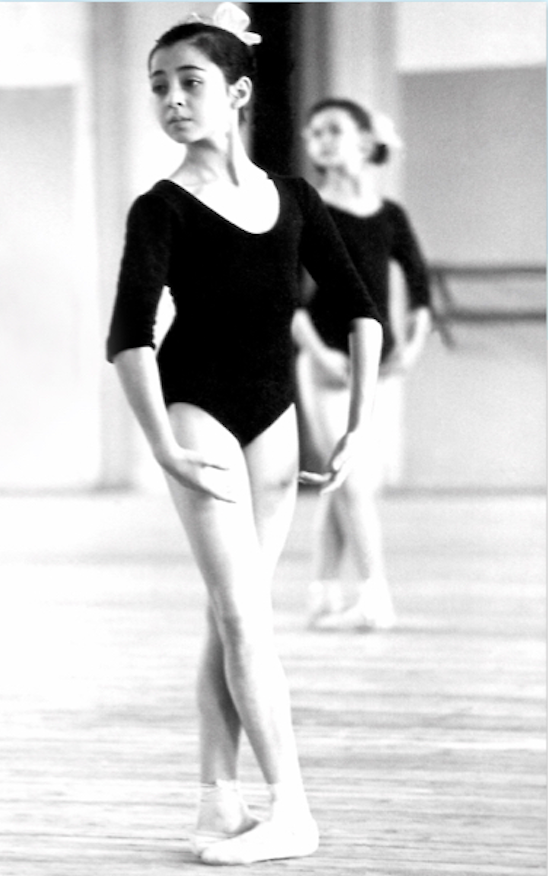 Wonderful, I think, in certain points. First, it was a really good school – they were training children to be athletic so we had stretches and I was already doing double turns in the air in the studio, so when I moved over to ballet I was like the boys – I was doing double tours one side and on the other even at the school. They would stop me in the corridor and say, Nina, show your jump. I did love skating, and it was a difficult decision for me to move to ballet but the main problem was that in ice you have a flat foot, but in the ballet you need that stretched foot, and in ice skating you scoop your back but in ballet it’s the opposite, you need to be strong and straight, so I always needed to think about my stomach in and stretching my foot. Since I was 10 years old I have always had this correction!
Wonderful, I think, in certain points. First, it was a really good school – they were training children to be athletic so we had stretches and I was already doing double turns in the air in the studio, so when I moved over to ballet I was like the boys – I was doing double tours one side and on the other even at the school. They would stop me in the corridor and say, Nina, show your jump. I did love skating, and it was a difficult decision for me to move to ballet but the main problem was that in ice you have a flat foot, but in the ballet you need that stretched foot, and in ice skating you scoop your back but in ballet it’s the opposite, you need to be strong and straight, so I always needed to think about my stomach in and stretching my foot. Since I was 10 years old I have always had this correction!
When you started ballet at the Georgian state choreographic institute, it was under the supervision of the great Vakhtang Chabukiani, wasn’t it?
He was my artistic director at the school, and I’m so lucky that I really worked with him even when I was like 12 years old. We had one big studio – now we have a new school only with small studios – but I remember somethign had happened to a girl in the graduating year who was doing a leading part, and he said call Ananiashvili… I remember very well because it was our mathematics lesson and they said, "Ananiashvili, go out, Chabukiani is waiting for you in the studio." And I was really chasing over to the studio, shaking.
And he said to me, "Nina, I want you to learn this part." But I have never learned about partnering, I had only been dancing variations, solos. And one of the soloists stepped up, he was a really big, strong man! And Chabukiani says, "ok, now pirouette and throw her in a pas de chat." And this guy goes, "Uh, I’m afraid if I throw this tiny girl she will hit the ceiling." So I remember that very well!
But also much later, later, when I was a Bolshoi ballerina it was interesting that we had this chat. My father took me to visit him when he was already old and he was sitting at home, never working. I was asking him questions about things, and I said, "Vakhtang Mikhailovich, it’s so difficult to sit home doing nothing." He said, "You wouldn’t believe how hard it is for me for me to sit home doing nothing, and it’s even more terrible that a lot of people don’t remember me." And he said to me, "One day, when you will be directing something, you will feel this - how you did so much for them but then they don’t remember you." I understood this, it’s like, it’s human. But I don’t know why he said that to me because I never thought about directing a company.
He saw something coming. As a child, did you only have the view of Georgia as feeding the centre, ie Moscow or Leningrad, with talent, or could you see a career naturally happening here in Tbilisi?
It was a Soviet country, I mean all education was the same whether in Georgia or the Vaganova school or Bolshoi ballet school. The reason we moved to Moscow was that someone from the Moscow Bolshoi school, Elena Zhemchuzhina, came to Georgia to see all the examinations and have discussions with Vakhtang Chabukiani and the teachers about who was good, or what to develop. And she saw me when I was about 12 years old – I was dancing quite a lot. And she told me she wanted to talk to my parents. I thought I must be doing something wrong, but she said no, no.
Compliments were really rare, they wouldn't say 'talent', they'd say, your child has something
You know, at that time compliments were very rare – now we’re afraid to say anything bad or good because if you say too much good you’ll have problem when later it doesn’t go somewhere. So now we’re afraid to say anything at all to young ones. But at that time, compliments were really rare, they’d say your child has something – they wouldn’t say "talent", talent is too much - but "she has something, and if you want her to continue life and career in ballet but it would be better to move either to the Vaganova or Bolshoi school."
This shocked my parents, and they said to me, "Do you want this or not? You’re 12, very young to move away from home", and my father said, "No, Nina cannot move away." But my grandmother – my best friend and the most fantastic person in my life – she says, "I will move with Nina to Moscow." And she stopped working, went with me to Moscow and we lived together there for 12 years. It was when I married that she came back home!
How did you feel in Moscow? You were Georgian, you spoke very little Russian. You must felt the question of your nationality quite keenly coming from a different language and indeed a different culture, from here in the south up to Moscow and the Bolshoi school.
I was very excited but it was also - well, I could say depressing, though now this word has become so normal but then we didn’t know what depression was. It was so difficult for me even to get into the school, I was so nervous that I fainted, but they just pushed me into the first class. And I was dressed very funny, because my mother had made me a dress, a beautiful dress, and when the teacher saw me come in last in this dress she said, "Why are you dressed like this? You have to wear a special brown uniform." I was nearly crying, I was saying, no, I was so sorry, I didn’t know I was even getting into the school. And I didn’t speak the language.
It was very difficult, because at that time in our school here there were Georgian courses and Russian courses - I was in the Georgian courses so when I moved there it was like Chinese to me. I had to learn mathematics, physics, all this in Russian language. And I would just handed in blank white papers because I couldn’t write anything. So they called me in, and called my mother, and said, "We don’t know what to do with Nina because she doesn’t know anything." And Mother said, "She does know, she knows a lot, but she doesn’t speak Russian."
What did you do?
It was a terrible difficulty, because really you know I am a kind of learn-learn person, I love to learn, and I was sitting up to 3 o'clock in the morning while my grandma, who knows Russian very well, was translating all these things from Georgian. Then Mother sent me a Georgian textbook and the Russian one, and then I could read everything first in Georgian then the Russian. Thank God it was the absolute same book. But for a half a year it was a nightmare.
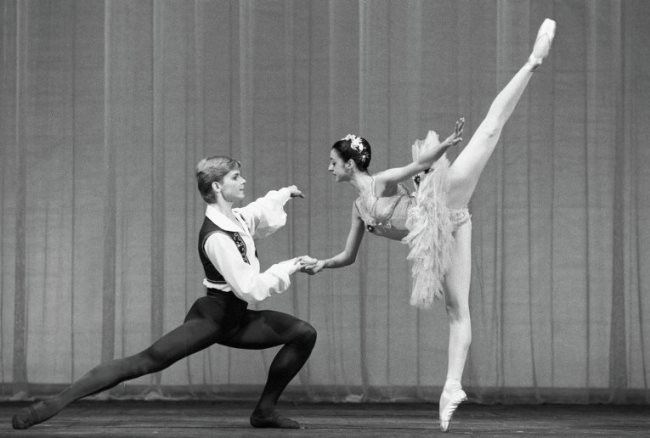 However, in ballet you really did very well, and you formed an early partnership with Andris Liepa at the school and you won the Junior Gold Medal at the Varna international ballet competition in Bulgaria as a soloist, and then the pair of you went to the 1981 Moscow competition where you won the Grand Prix (the pair pictured above).
However, in ballet you really did very well, and you formed an early partnership with Andris Liepa at the school and you won the Junior Gold Medal at the Varna international ballet competition in Bulgaria as a soloist, and then the pair of you went to the 1981 Moscow competition where you won the Grand Prix (the pair pictured above).
Mm-hm!
You were accepted into the Bolshoi corps de ballet but you very quickly became promoted to soloist. Your coach was Raisa Struchkova.
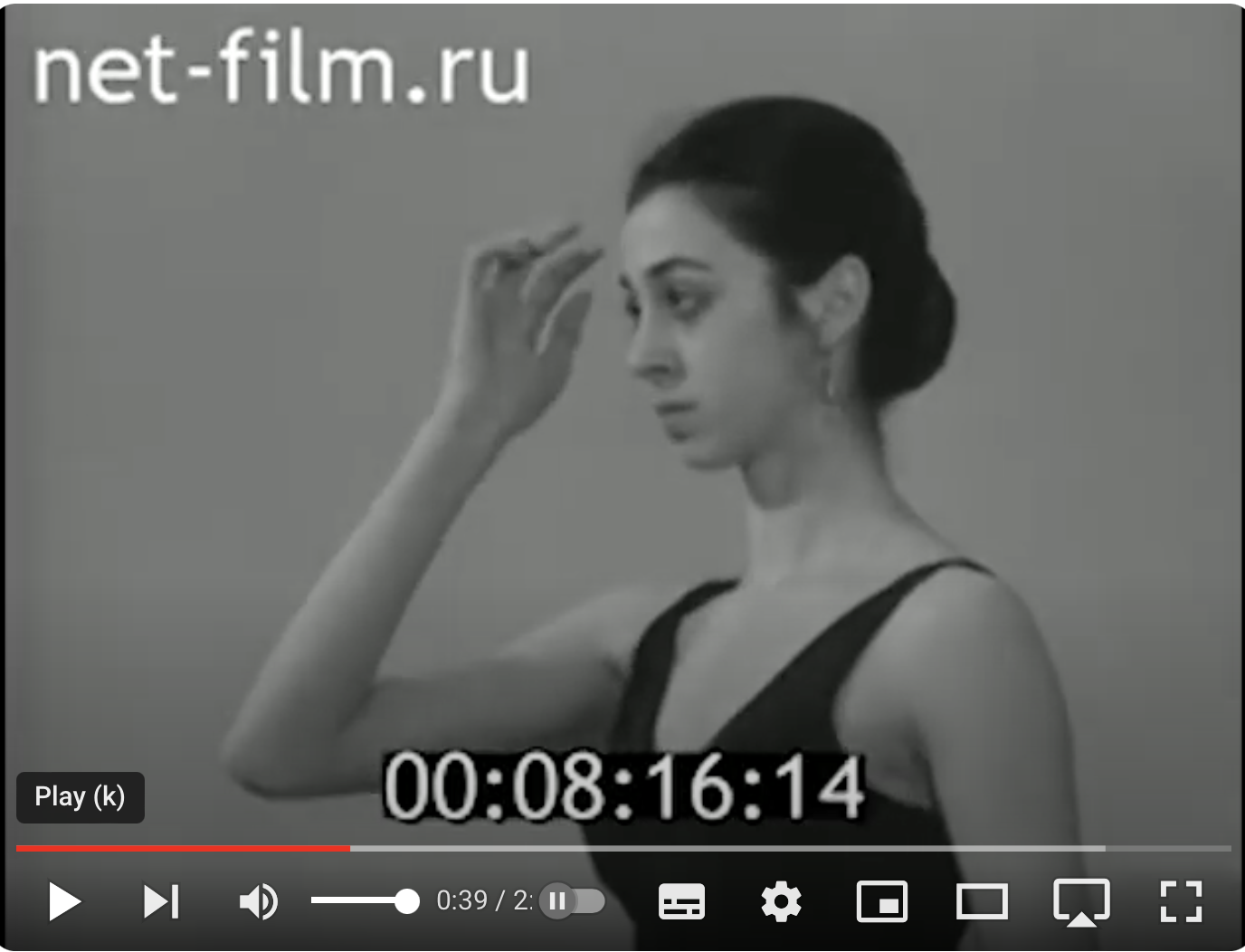 A great Russian ballerina. She had a divine quality on stage. It was funny, some little film (linked via the screenshot, right) was made about me after I won the Grand Prix with Raisa coaching me. It was before we had videos, we just had television. But this film was made to show as a news journal before the main film in the cinema, like an advertisement, up on the big screen, and I said to grandma, "You know, we really do have to go and see this movie." And she said, "Why? It's a terrible film and I don’t want to!" I said, "No, no, no, we have to because before it they will be showing this film about me!" I was in a terrible state because it was the first time I saw myself in movement - and I remember in the studio when Raisa was saying, "Not enough! not enough!" and I was thinking at the time, that I’m doing everything I can… but when I saw it on film, I realised, oh my God, it really was not enough!
A great Russian ballerina. She had a divine quality on stage. It was funny, some little film (linked via the screenshot, right) was made about me after I won the Grand Prix with Raisa coaching me. It was before we had videos, we just had television. But this film was made to show as a news journal before the main film in the cinema, like an advertisement, up on the big screen, and I said to grandma, "You know, we really do have to go and see this movie." And she said, "Why? It's a terrible film and I don’t want to!" I said, "No, no, no, we have to because before it they will be showing this film about me!" I was in a terrible state because it was the first time I saw myself in movement - and I remember in the studio when Raisa was saying, "Not enough! not enough!" and I was thinking at the time, that I’m doing everything I can… but when I saw it on film, I realised, oh my God, it really was not enough!
Tell me about the relationship that is encouraged in Russia in particular between a dancer and her coach. It’s quite uncommon for that relationship to go on through the dancing career in other parts of the world.
NA: It depends on the person. Natalia [Zolotova, her teacher at the Bolshoi school] and Raisa [Struchkova, her coach in the Bolshoi company] were unique people. I call them my two Russian moms, because I spent more time with them in my life than with my beloved mother. I didn’t have any artist in the family so if I had artistic questions I went to them. They were my mentors in life. They taught me how to behave in the ballet, how to listen and how not to listen, how not to watch, and not to talk more than necessary.
Because the theatre is a difficult sort of structure, it’s like a city inside a city, lots of intrigues. And you need to be careful because sometimes people say something about you that you didn’t do or you didn’t say. We say, in a big theatre like the Bolshoi there are big problems, in a small theatre, small problems. It was not easy to play these kinds of games, sometimes very hard. Raisa would always say to me, "Wait, wait, and don’t say anything. If you want to cry, cry with me, we will cry together. But wait." And suddenly I think I’m winning. You remember in Raymonda that though others were dancing it the critics - like you! - were all writing about me.
Did you feel now you were a Bolshoi ballerina rather than a Georgian from outside - you had become part of that Bolshoi identity?
Of course I’m a Bolshoi ballerina because I went into the Bolshoi when I was 18 years, and I finished after 23 years. I was dancing with them. So I never left the Bolshoi - well, I was ready to leave it, frankly, but I never left because the situation changed. Yeah.
We’ll come back to that, but first, you were a principal dancer aged 22, very young for the Bolshoi, and then you toured to London on that long overdue Bolshoi tour after several years away. And as you mentioned, you were wildly acclaimed. Did those London reviews, did that attention paid to you from outside, matter to you?
You know, what’s very interesting is that all my lifetime, of course I’m the Bolshoi’s ballerina, but even if you see my reviews and articles everybody mentions I’m a Georgian. It doesn’t matter where I was dancing. Maybe they just saw my dark hair, dark eyes, I don’t know, but they always mention my character. Even I think in London people wrote that I dressed like a Georgian. That means black!
But that’s a very good point, because I don’t think with the other Bolshoi performers that we did pick nationality out particularly, but we did pick you out as Georgian! I did. And I wonder why that was?
I really don’t know what it is, but ny beloved father, he is still alive, he has a fantastic collection, of I should say everything written or published about me now. And he told me this, so they always pointed out that I am Georgian. Well, like I say, I’m born Georgian, I am Georgian, and I’ll die Georgian, but when I’m dancing it doesn’t matter. I think people will just want to see my dance.
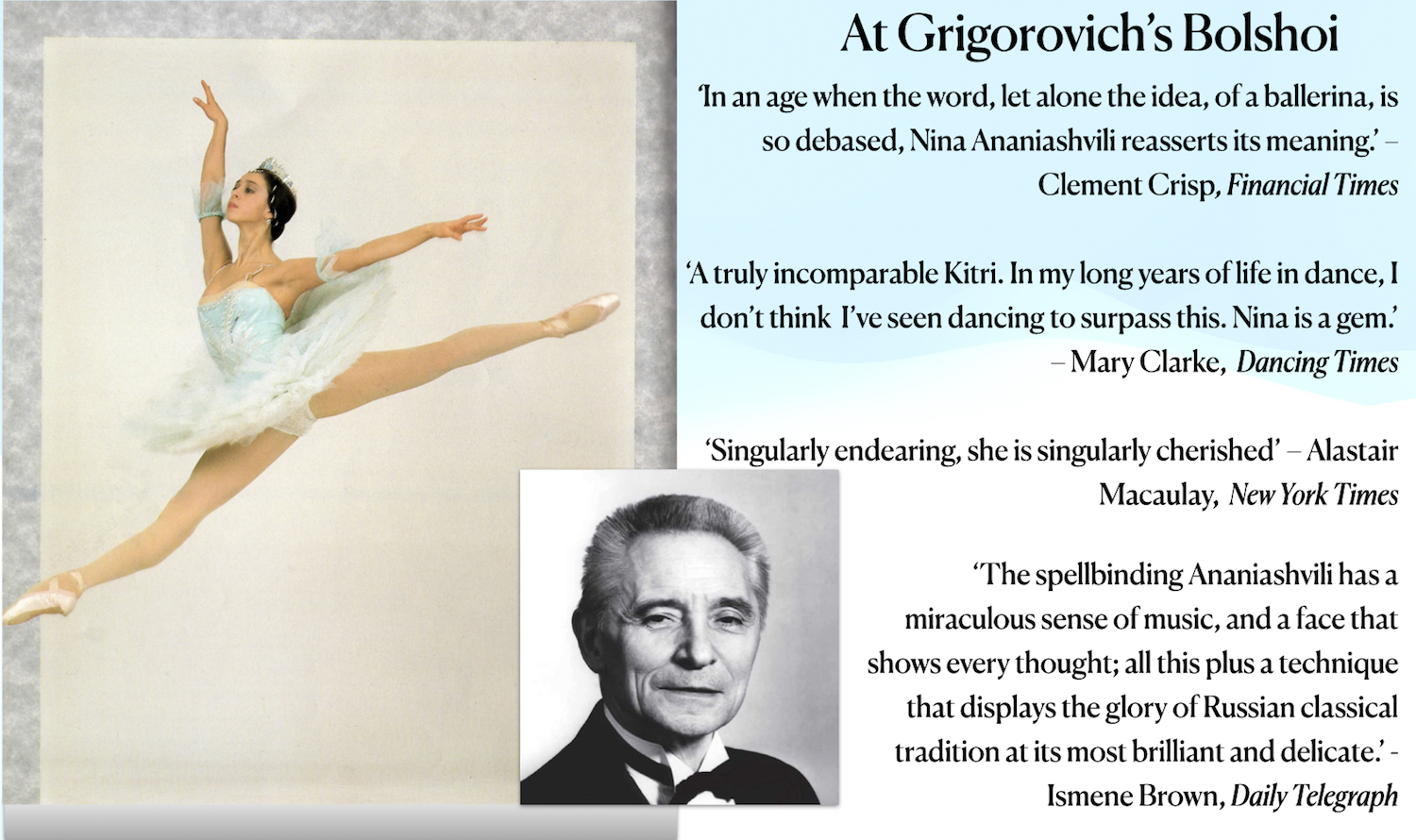
I guess what critics might have been thinking was that you were actually taking away these categories, that we were talking just about art, about watching artistry. I picked out some quotes from some of the critics who saw you: ‘"In an age when the word, let alone the idea, of a ballerina is so debased, Nina Ananiashvili reasserts its meaning." So you brought meaning back to the word ballerina.
Wonderful!
That was Clement Crisp of the Financial Times. And Mary Clarke in Dancing Times said you were a "truly incomparable Kitri. In my long years of life in dance I don’t think I’ve seen dancing to surpass this." And I myself remember one of the most transporting experiences of my life was watching your Raymonda. I simply felt so much watching you. I wrote in the Telegraph: "The spellbinding Ananiashvili has a miraculous sense of music, and a face that shows every thought; all this plus a technique that displays the glory of the Russian classical tradition at its most brilliant and delicate."
Darling Ismene, it’s so nice! Now I understand what was written! But at that time I don’t speak English, I don’t read English, I just thought, oh, it was good critique, that’s it. Nobody translate it for me, and my father says now I’m too old to listen to this! Really after London a lot of things changed for me, because I really became the Bolshoi’s ballerina.
1988 was a big year. You married Gregory Vashadze, who worked in the Soviet Ministry of Foreign Affairs, and you and Andris Liepa became the first Soviet dancers to be invited by New York City Ballet. What did that invitation to the USA mean to you? Of course, George Balanchine, the great choreographer who founded and ran New York City Ballet, was originally Georgian. He died just before you went there so you never met, but artistically the Russians and the Americans both like to have a part of him, don’t they? Did you feel you could claim him as a fellow Georgian?
American, Georgian, American-Georgian… You know life is so strange, and I always so never ever say no or something is impossible. Do you believe, I actually saw Mr B [as Balanchine was widely dubbed] in Georgia when he came with New York City Ballet to perform? I was very young maybe 7 or 8 years old, and it was impossible to get tickets for the Philharmonia where they were dancing. Father says to me, "I will stay there - I’m sure somebody will either be late or they won’t come so I can buy extra tickets just before the performance. So be dressed and be ready, and look at me all the time, and when I say to you, come on!, you must run!" I was so nervous because the performance starts at 7 and it was 6.25, 6.45, and then at 5 minutes before 7 I see my father screaming from the end of the street, "Come on, Nina! Quickly!" I was quite a good runner so I ran across the street to the Philharmonia - at that time there was not so much traffic - and so I saw New York City Ballet! We were in the last row of the parterre, and I was too small to see, so he put me on his knee, and everything was magic. These costumes, like flowers, the music.
And you eventually much later managed to bring Balanchine to be danced at the Bolshoi, so there was a kind of return for his work.
For 10 years Andris and I tried to get Balanchine work into the Bolshoi, and it never happened until Alexei Fadeyechev became artistic director of the Bolshoi. Suzanne Farrell [Balanchine's celebrated ballerina] came to stage Mozartiana for me - my husband bought the rights for it for me as a present, which was unique – and Alexei also brought Agon and Symphony in C, and John Taras came to the Bolshoi to work with us and Tatiana Terekhova from the Mariinsky, and it was a huge success.
How did the Bolshoi feel about Balanchine? He had become an emigre. Did they feel about him as an outsider?
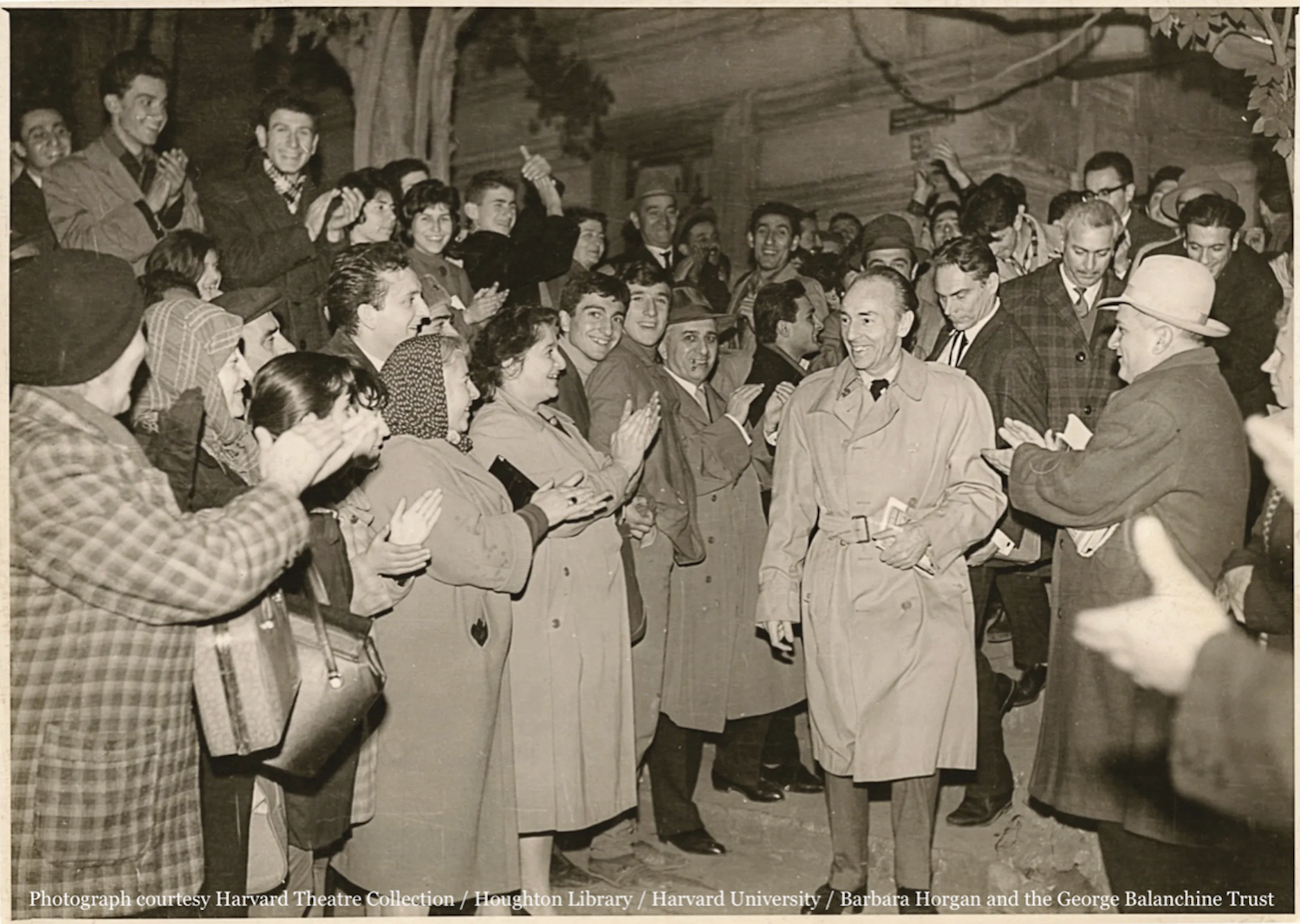 No, I don’t think so. They all respect each other. We are all artists, and between artists especially in our art of ballet we don’t have borders. It’s important who you are, what you do. I think all Russians were proud to meet George Balanchine when he came to Russia and Tbilisi (pictured left), he was a genius, a genius.
No, I don’t think so. They all respect each other. We are all artists, and between artists especially in our art of ballet we don’t have borders. It’s important who you are, what you do. I think all Russians were proud to meet George Balanchine when he came to Russia and Tbilisi (pictured left), he was a genius, a genius.
He did actually try to build a new opera house in the Tbilisi for dance, he said, I’ll give you the money but it must be given my father's name, Balanchivadze Hall. But [shrugs] Moscow said no. Everything goes through Moscow. It’s no. And we didn’t have a dance theatre.
This was a frustrating time for you. You were still very young, about 26, but you were already having conflicts with Grigorovich And there was a huge ballerina competition going on in the Bolshoi. Another Bolshoi ballerina told me one needed the claws of a tiger and the hide of a rhinoceros to survive in Moscow - it didn’t sound a pleasant feeling to be a leading ballerina. You started dancing more and more in London and America and that actually brought you world stardom. Did you feel you were achieving more opportunities outside, that the Bolshoi was actually closing options for you?
I would say it like this. In Soviet times to be a Kirov or Bolshoi ballerina was something, it was big big status. But they didn’t have the opportunity that we had later to travel around the world, performing in La Scala or somewhere, very, very few. It was always big control, and not just because I’m Georgian. No, no, even with the Russian ballerinas, if somebody didn’t want them to go, they will say, no. Like when I had a lot of invitations I wouldn't even know about them, but they would say, "Nina’s sick, Nina’s not coming." It was the normal way. You know, like they would kick me out of a performance when I had been written down for it - I would come in to do it and somebody else’s name would be put down over mine, and when I asked question why, they would say, "It’s because you’re young, you can wait."
Mind games.
Yeah, it was like they were playing games, but then I was lucky because perestroika starts and Gorbachev comes in and Gorbachev changed my life, like a lot of other people’s lives. And we imagined that time was freedom but we weren’t right. We thought the country had changed, but we see it’s not quite so much.
You made a very strong impression in both London with Kenneth MacMillan and America, you would become a prima ballerina in American Ballet Theatre - it became a second home for you. Talk about what you saw outside that was different from Russia and that you felt would feed you as an artist.
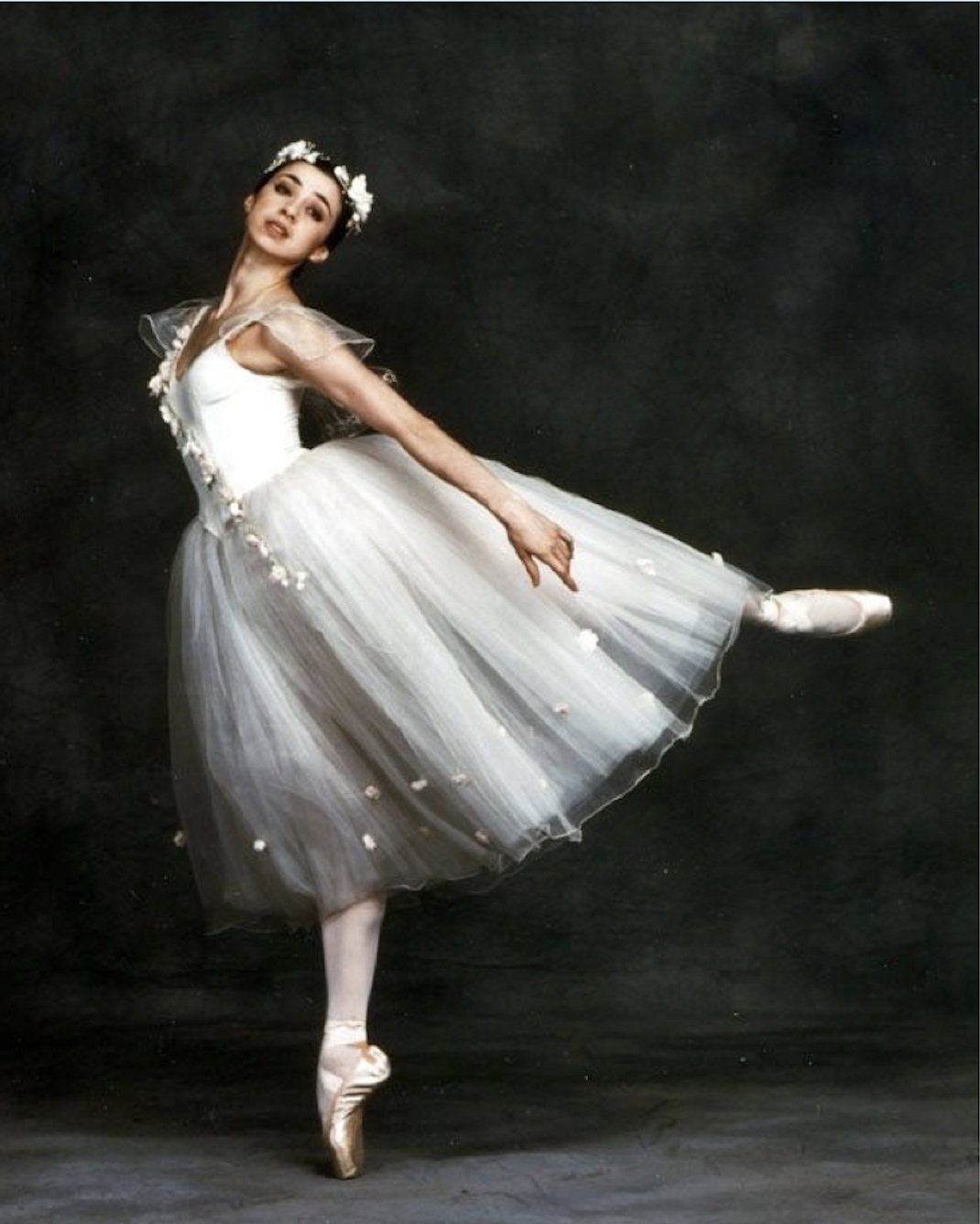 You know I was absolutely shocked when after I danced with the Royal Danish Ballet I was invited to dance with the Royal Ballet in London (pictured left: in La Sylphide, by Nancy Ellison). Especially because Kenneth MacMillan loves me and wanted me, so I danced his ballet, and it was magic for me. I mean, I couldn’t even dream something like this, it would be impossible before. So when I personally met Sir Kenneth MacMillan with Alexei Fadeyechev and we started dancing his ballet The Prince of the Pagodas, we had a fantastic feeling, fantastic. Of course he was a big big figure, but somehow he was very friendly and very warm with me, and it continued so that every year I was going to dance with the Royal Ballet. I was dancing Ashton ballets, their Fokine Firebird - and then he died. It was a tragedy for me.
You know I was absolutely shocked when after I danced with the Royal Danish Ballet I was invited to dance with the Royal Ballet in London (pictured left: in La Sylphide, by Nancy Ellison). Especially because Kenneth MacMillan loves me and wanted me, so I danced his ballet, and it was magic for me. I mean, I couldn’t even dream something like this, it would be impossible before. So when I personally met Sir Kenneth MacMillan with Alexei Fadeyechev and we started dancing his ballet The Prince of the Pagodas, we had a fantastic feeling, fantastic. Of course he was a big big figure, but somehow he was very friendly and very warm with me, and it continued so that every year I was going to dance with the Royal Ballet. I was dancing Ashton ballets, their Fokine Firebird - and then he died. It was a tragedy for me.
October 1992.
Yes, it was a tragedy because I had a lot of plans with him, had invited him to Russia. I also had an invitation to leave Russia and stay with the Royal Ballet permanently. But we refused it because at that time we wanted freedom. I don’t know, maybe it was a big mistake or did I do the right thing? My husband was absolutely furious, he said, "You are two crazy people, you and Alexei, how it’s possible to say no to the Royal Ballet?" But we wanted to be free and suddenly then Kenneth MacMillan is dead. And Kevin McKenzie comes and says, "We need you at ABT", so I went to the United States and was ABT’s ballerina 16 years.
Is that where you began to sense that you could now control your career? You could for instance find your own choreographers, like Alexei Ratmansky. And you could start to develop this idea of how to steer not just your career but maybe others’?
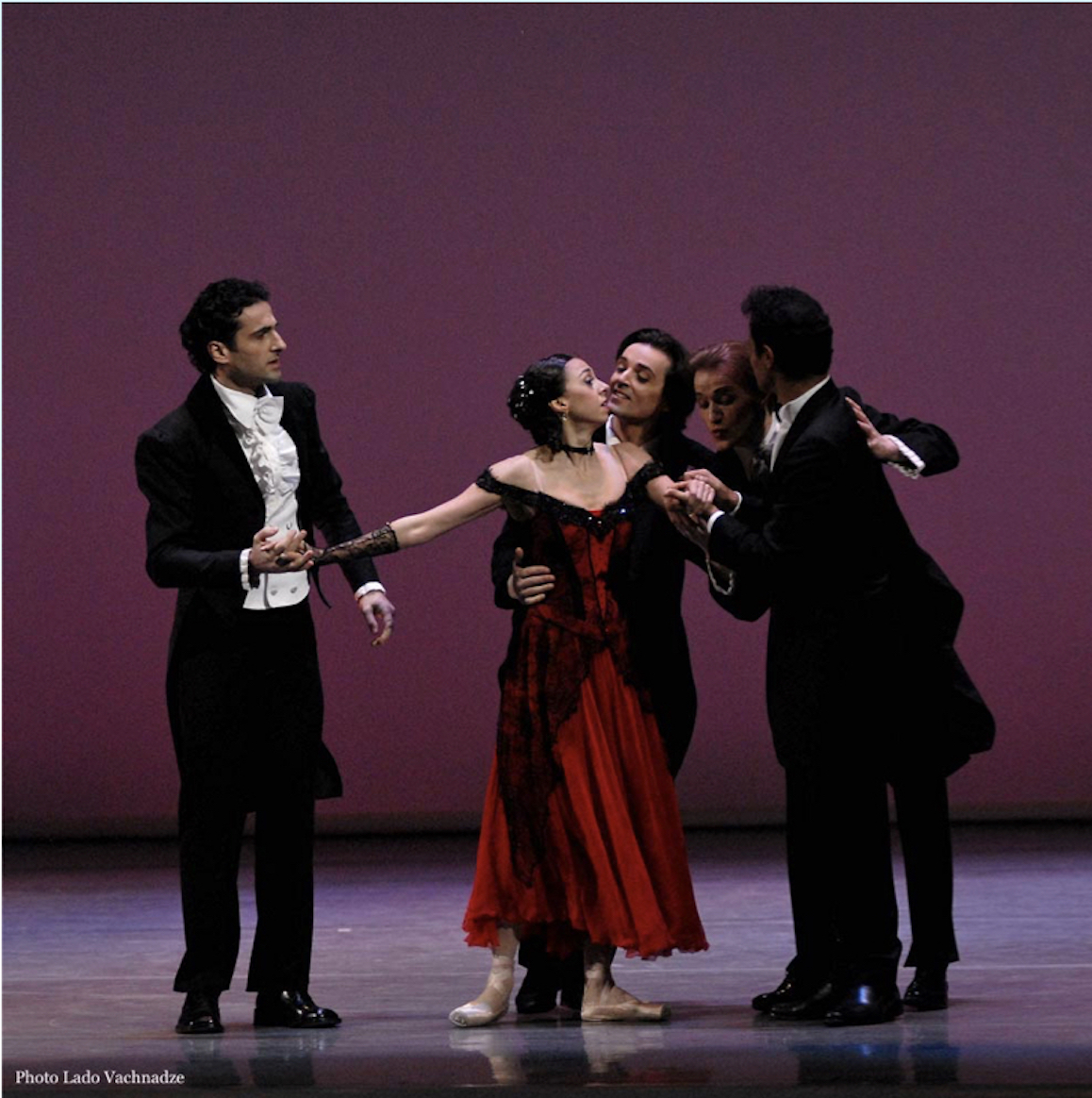 You know, I can only say to you that I didn’t have the chance to work with choreographers because I always did the repertoire that the Bolshoi had. I mean, all the classical ballets, but I didn’t get the chance to work with new choreography because in the Bolshoi if they invited someone there was some other ballerinas ahead of me in line because I was the young one. So it was like my first chance to do so when I invited Ratmansky to stage a ballet for me because I was commercial! (Pictured right: in Ratmansky's Waltz). And I had the opportunity, and he was a young non-name choreographer at the time. And I was so lucky because he made me three ballets, Charms of Mannerism, Dreams about Japan and Leah, with Bernstein music. And by the way I was the first person to bring Leonard Bernstein music to Russia.
You know, I can only say to you that I didn’t have the chance to work with choreographers because I always did the repertoire that the Bolshoi had. I mean, all the classical ballets, but I didn’t get the chance to work with new choreography because in the Bolshoi if they invited someone there was some other ballerinas ahead of me in line because I was the young one. So it was like my first chance to do so when I invited Ratmansky to stage a ballet for me because I was commercial! (Pictured right: in Ratmansky's Waltz). And I had the opportunity, and he was a young non-name choreographer at the time. And I was so lucky because he made me three ballets, Charms of Mannerism, Dreams about Japan and Leah, with Bernstein music. And by the way I was the first person to bring Leonard Bernstein music to Russia.
And in 2004 you made this big decision to return to Tbilisi to regenerate the State Ballet of Georgia. Invited by your friend, the president Mikheil Saakashvili.
Not my friend, then. He was president of the country.
So this was something specifically for Georgian nationality.
You know my life had changed a lot by then, I was dancing in Russia five performances a year and around the world a hundred performances. I was travelling much more and yes, I got this invitation, because he called me and said I want your help, we need you now. And he was very young and I do think he did a lot of good things for our country in the beginning, it was amazing.
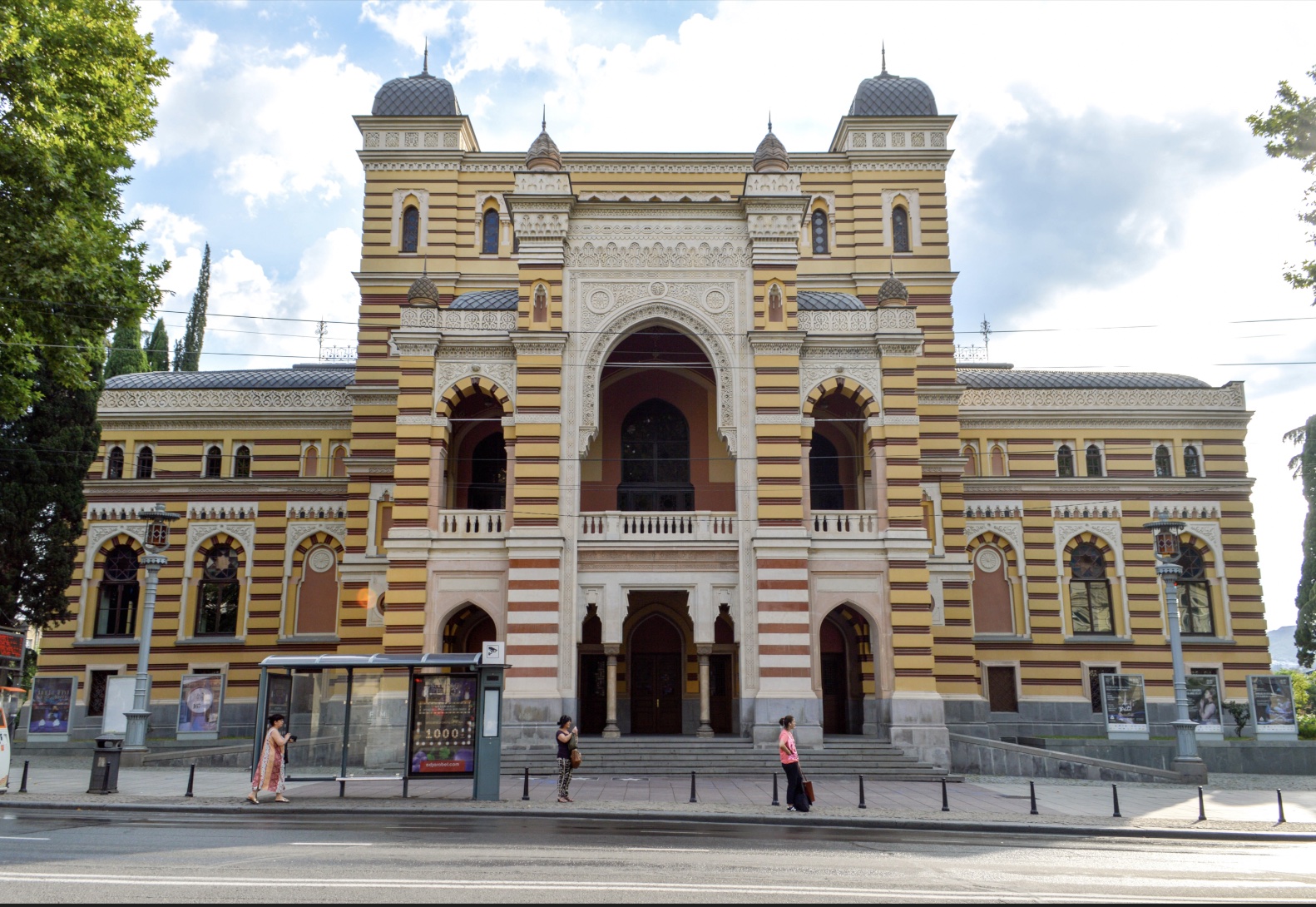 You know when I first came here we don’t have light, we don’t have heat, people don’t have food or salary. I mean, some older generations here were not paid at all but they were still coming to do their job in this theatre because they loved theatre. And they saved this theatre for this difficult world, working without money. When I say this nobody believes it. They came to do class every day, walking from Rustavi, because they want to and loved what they do. The director at the time was even sleeping in this theatre because he was worried people might break in and damage it. All these people they saved this house.
You know when I first came here we don’t have light, we don’t have heat, people don’t have food or salary. I mean, some older generations here were not paid at all but they were still coming to do their job in this theatre because they loved theatre. And they saved this theatre for this difficult world, working without money. When I say this nobody believes it. They came to do class every day, walking from Rustavi, because they want to and loved what they do. The director at the time was even sleeping in this theatre because he was worried people might break in and damage it. All these people they saved this house.
But they had nothing, and the president at the time promised he can give me money for performenace, for stage, and for salaries. And then lots of my friends, the Balanchine Trust, Frank Anderson, lots and lots of people I was working with around the world, everybody was helping. I mean during Vakhtang Chabukiani’s time this was one of the most famous opera houses anywhere (pictured above, today). Everybody who went to Moscow always came to Tbilisi. But it was a very hard time, for 25 years the country had no money and the country itself was in a big problem because 30 kilometres from here were still Russian troops and they come into Abhazia, and so it was really really difficult and they’re still like that, you know.
Given that Georgia is a very small country in population compared to the Soviet Union, when Moscow used to suck in dancers from all the territory – what, there were 280 million people to select from? Did you feel that Russia was still the natural place for you to look to for aesthetic and technical style, rather than European models, say German, for instance, where there are strong smaller companies.
No, no, I would say that because we were in the Soviet Union we had the Soviet Union tradition, and Vakhtang Chabukiani too. But by the way ballet in Georgia was started by an Italian, Maria Perini! And from Maria Perini’s school Vakhtang Chabukiani went to the Mariinsky, because you know in the Russian ballet during the empire time you see a lot of Italian ballerinas who came to Russia. And then you have Pavlova, Kchessinskaya, Karsavina, I mean these great great names were from the Russian school. I mean even English ballerinas had Russian names! So of course we continued this method.
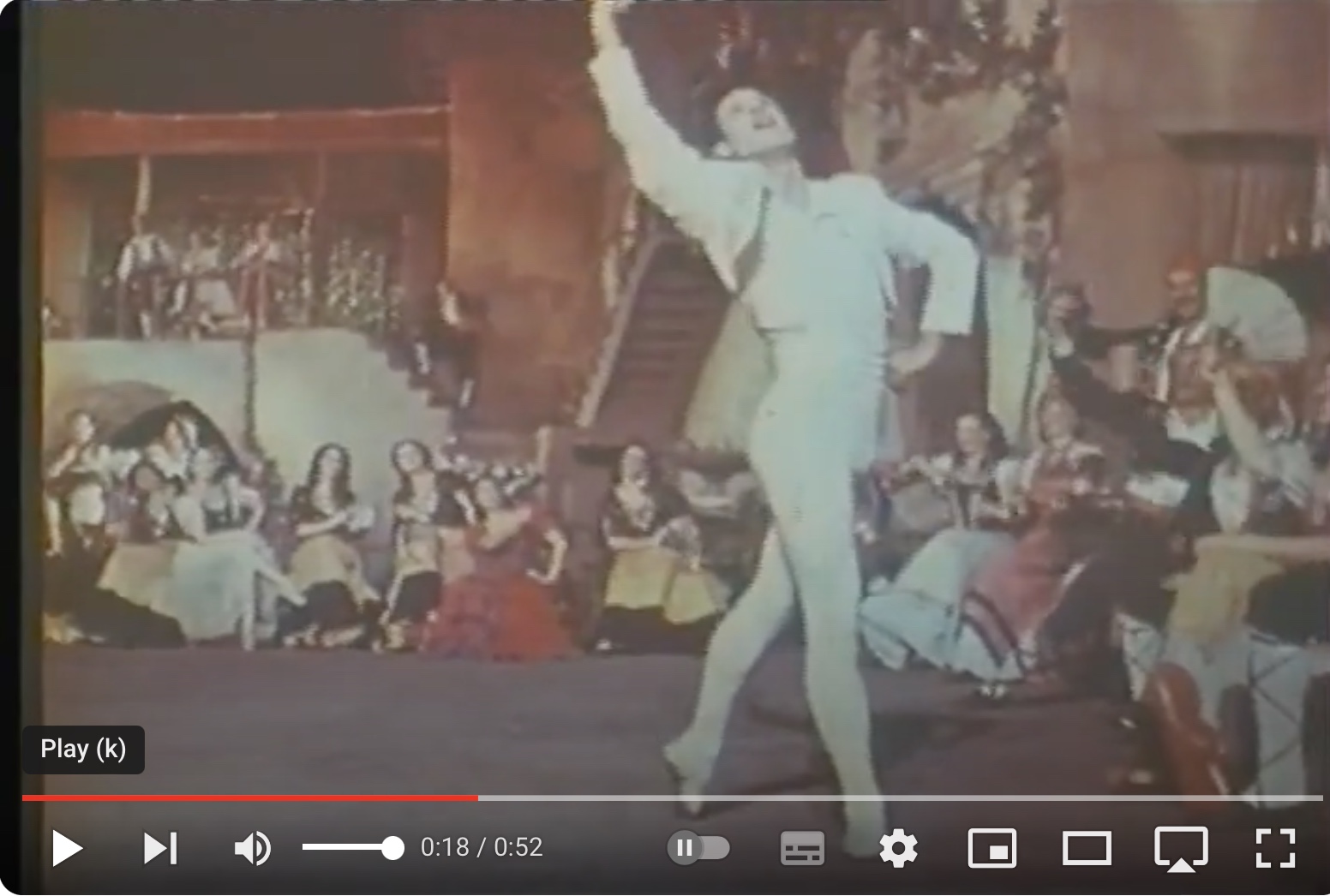 Let’s have a quick look at Chabukiani dancing the Frondoso variation from his Laurencia. (Link via screenshot, right)
Let’s have a quick look at Chabukiani dancing the Frondoso variation from his Laurencia. (Link via screenshot, right)
It’s amazing. I’m just back from Split and I was staging Chabukiani’s Laurencia there, and even today’s young generation who are very technical cannot do double cabriole front and double cabriole back like Vakhtang was doing.
He certainly put men centre stage in classical ballet, where usually it’s everybody’s looking at the ballerina.
You know it’s very interesting that a lot of ballerinas refused to dance with Vakhtang Chabukiani because he always had the bigger success than ballerinas. When he would dance Don Quixote in Moscow all the young ones went to see him and what tricks he would do. And they would say, "Did you see what he did?!" But nobody would remember exactly what he did! It was a miracle how naturally he was dancing, such natural technical and natural movement. He created all these big jumps in so many classical ballet variations, Don Q, Corsaire, Bayadere, Gamzatti variation - everybody says Petipa, but it’s not true. In Petipa’s time male dancers did not dance like that.
He founded that long line of great male dancers, through Nureyev and Baryshnikov, they learned so much.
From Chabukiani. yes. Nureyev very much.
It makes the point that in ballet the nationality issue is not relevant. Ballet has been intensely politicised - during the Cold War the Soviet Union and West kind of threw their ballet companies at each other in a sort of proxy battle between the communist and free worlds. But it does have the advantage over theatre and opera that without the verbal content, and with this artistic unity in the discipline and aesthetic training worldwide, classical ballet does just excite audiences viscerally all round the world and doesn’t really carry nationalist messages very well. It’s interesting that Swan Lake is still a battleground every country’s ballet wants to repossess, they want to show they have a great Swan Lake! Nobody cares that it came from Russia originally, it’s become a worldwide possession, hasn’t it?
Yeah, absolutely. I mean, probably everyone in the world didn’t see classical ballet before the Russians showed it but now there is Bayadère, Raymonda, this kind of ballet that just existed in Russia during the imperial time. But now each company has Swan Lake, and you know if a company can dance Swan Lake it means its level is very high. And I’m so happy that after 20 years our company will go to London for the first time, this August and September. We will dance Swan Lake. And I’m very nervous!
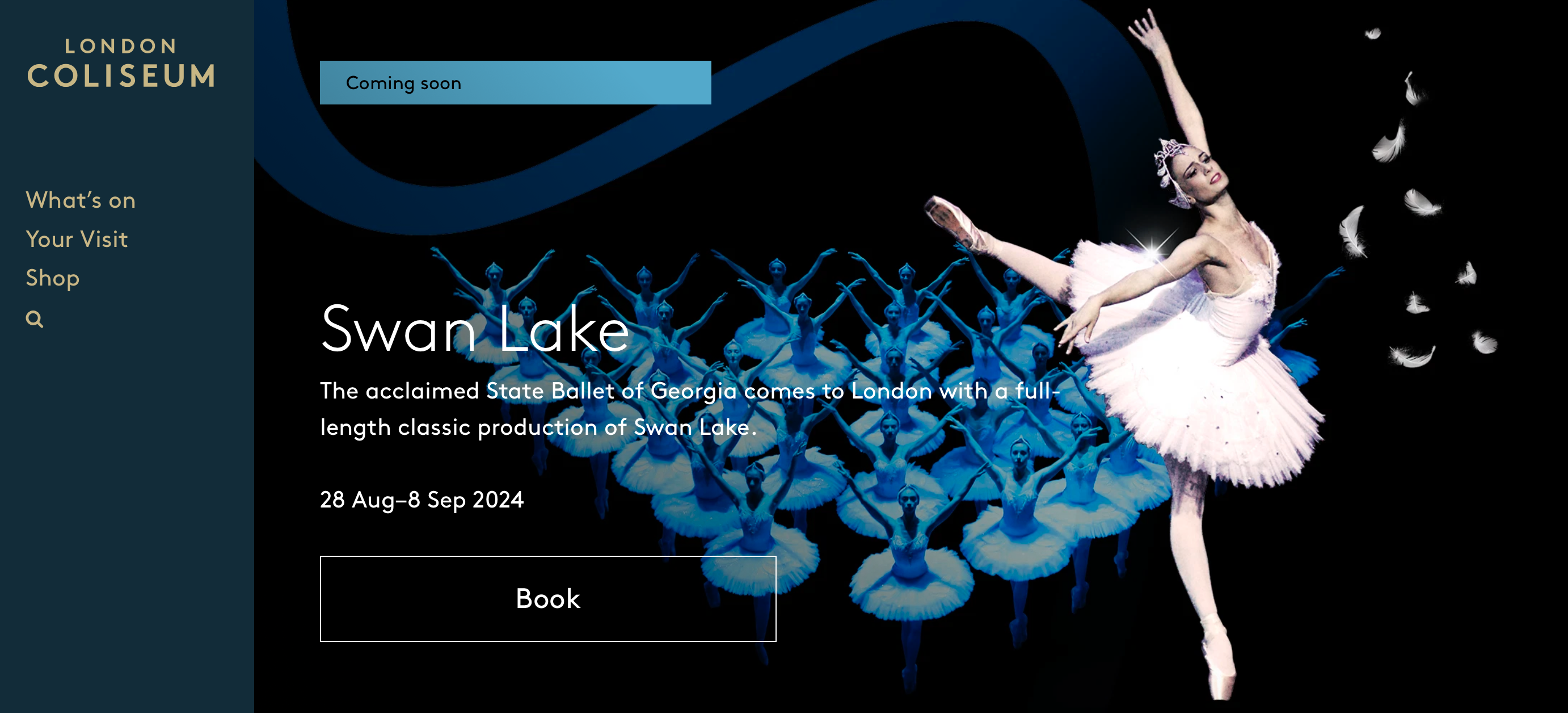 Do you feel as a Georgian ballerina directing a Georgian company that you are obliged to express Georgianness, so that the ballet company doesn’t look like an international company but that it actually looks identifiably Georgian? Is that important, or necessary?
Do you feel as a Georgian ballerina directing a Georgian company that you are obliged to express Georgianness, so that the ballet company doesn’t look like an international company but that it actually looks identifiably Georgian? Is that important, or necessary?
Of course mostly we are raising our own children from our school for the company but I also have now a lot of international dancers. Everywhere in the world, maybe except Russia, there are dancers from the West. So I am very happy to have these dancers who come to learn ballet, learn from us, learn from me and be part of our State Ballet of Georgia.
There’s a difference there between the Georgian National Ballet and your State ballet, that the others are really expressing something Georgian and ethnic in their folkloric style while you are talking about ballet as an international art form.
Of course we are a classical ballet company – and even though they are called "national ballet" they are not ballet, they are a dance company. But they’re great! I love all Georgian folk dance, and I think we have in our blood this dancing energy, something that is absolutely wonderful. We do have some Georgian dancing in our productions though, especially in Chabukiani’s production Gorda.
In today’s world there’s much political polarization in world events, particularly connected with Russia and Ukraine, and the elements of identity that have become involved in art - for instance there are arguments about whether Tchaikovsky is Russian, or too Russian. You at one point not long ago considered directing a Russian company in Novosibirsk in parallel with the Georgians, and you described that idea as a creative partnership. I wondered what creative partnership you envisaged between a Russian company and a Georgian one. Because there were protests, weren’t there? There were people who felt you shouldn’t be heading a Russian company.
I think that was a very difficult period. Maybe I made a mistake, but my mind was going a different way, I wanted to do co-productions, and they wanted my international names. Maybe it was a mistake, I don’t want to talk about it.
But what I would like to say is it’s very sad today, because I have a lot of Russian friends and they’re still my friends, but they’re locked, they cannot make free choices now. We all see this. I have a lot of Ukrainian friends and partners who come here and are helping us, but it’s all so so sad because Ukrainians can’t dance Tchaikovsky because it’s Russian music, but at that time Tchaikovsky didn’t know what would be later. So you know this is all very difficult. I don’t want to talk about politics because I’m not a politician, but I think it’s not good for anybody in this kind of situation. I want to invite maybe a Russian dancer to a festival but I cannot, because of the situation, and the whole world is like this. Somebody is protesting, don’t invite them, and you can’t invite someone.
Your old friend Alexei Ratmansky for instance is very outspoken about Russia, yet he was the Bolshoi Ballet director in the past.
Of course, he’s from Kiev, so of course it’s his country. But you know, this is what I was saying before. When we had our problems here in Georgia we were screaming about this, that people were not listening to us because we are not many people here, but we were screaming about this from the beginning.
Nina, let’s return to the art of the ballerina. A simple question: how do you become a great ballerina, as opposed to a good one? Is it an act of will? Is it a vision that you have in your mind and reach towards, or is some of it luck, or the right teacher?
You know when I say I’m lucky, of course I’m lucky to have around me these kind of people, I’m lucky to have my parents. I’m lucky to have married the man whom I married – but you know, it can be your choice too, to do it this way or that way, to go this way or that way. I didn’t just have Gregory my life, I had other people who also really wanted to marry me, but I chose Gregory. Why I don’t know! But maybe he was much stronger because I was always saying no! He waited three years.
Now if you say to a young one I’m so sorry, your physicality is not so good for ballet, they can sue youIt’s not just one thing, character or luck, no, it’s hard work, but not just hard work. You do need to have a special quality for our job - it’s very difficult, maybe the most difficult job because it doesn’t matter how hard you work if you don’t have physically the advantages for ballet, natural gifts from mother and father. This is so important but today is very hard the whole world is changed, and you cannot say this, you cannot say that - I mean, if a singer doesn’t have enough voice you can say, "I’m so sorry, you don’t have the voice" and nobody can complain about this. But if you go and say to a young one I’m so sorry, your physicality is not so good for ballet, they can sue you.
Of course, there must be talent, we must have the quality to keep our job at a high level, but it doesn’t mean this person cannot go and find a career somewhere else. Like Maria Kochetkova who is prima ballerina, she told me what a good decision she made to leave Russia when she was 18 years old, and she wona competition. She moved to the United States to dance in San Francisco and how she is a ballerina dancing everywhere in the world, this small tiny person. And she says, she knew if she stayed in the Bolshoi she would have just that part of Manu and that’s it. But now she is making a fantastic career around the world, and she is dancing with us. I’m so happy. But this is an example you know of taking a risk, and sometimes people are afraid to take a risk. She made the risk and she wins.
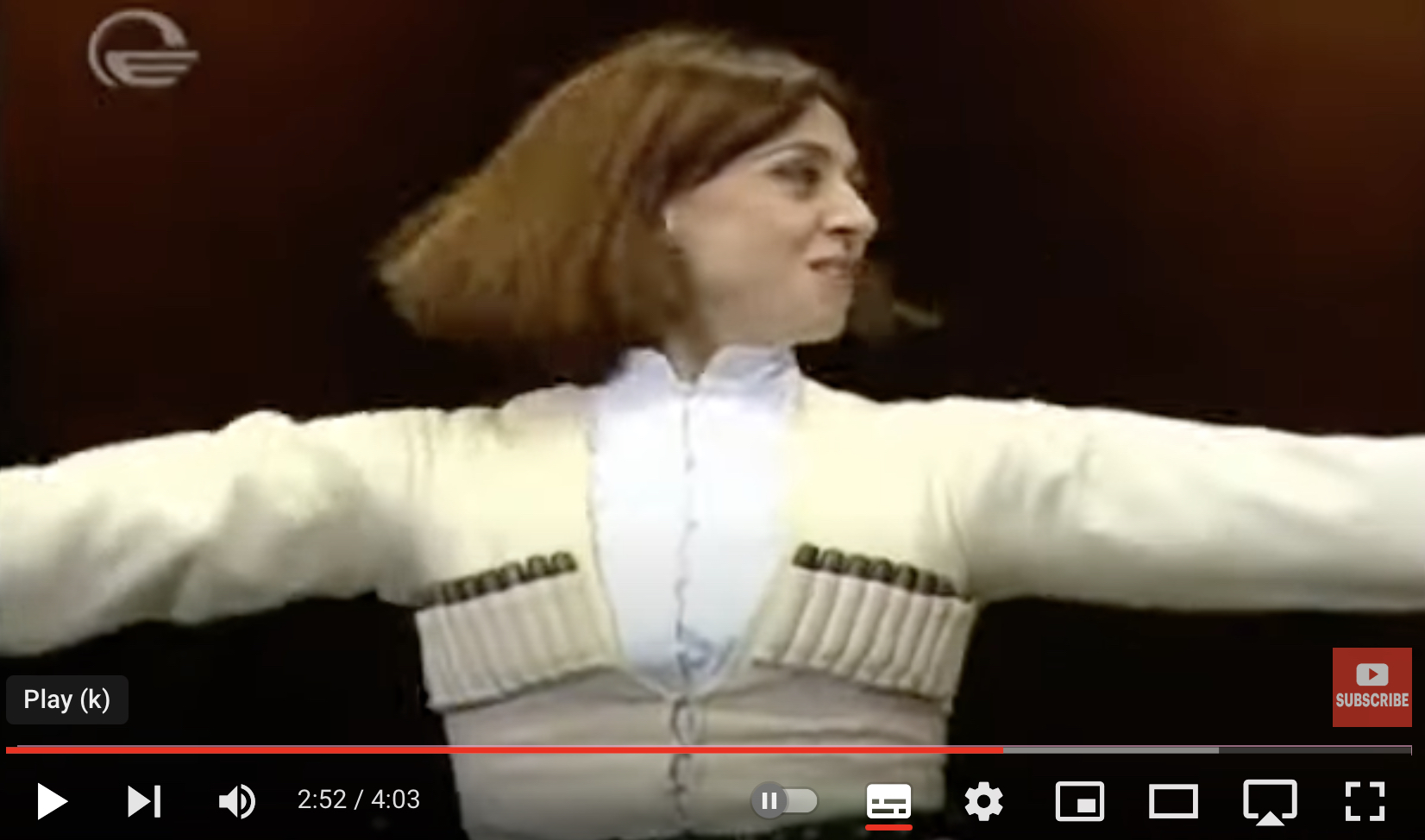 I’d love to end with a clip of you dancing with the opposition, the Georgian National Ballet.
I’d love to end with a clip of you dancing with the opposition, the Georgian National Ballet.
There’s the happy face of my husband watching! He’s always more nervous than me! Thank you, Ismene. Today a lot of my memories have come out, things I haven’t talked about for a long time, and especially as I see my students from my school who are watching me and they all speak English better than me!
But you know, it’s incredible, because I don’t know, some will maybe become doctors, or maybe lawyers, some ballerinas, some modern dancers. But what I want to say to them is to enjoy life. Your love for ballet never goes out. I mean, it doesn’t matter what you do in life, you will always love this hard job, and you will know from inside how hard it is, and you will explain it to others and maybe your kids will dance later or something. But whatever it is, always find a good way. If something doesn’t go like you want it, you don’t need to give up, but find a way to be round ballet, or to help ballet, like becoming a physiotherapist, or if you become rich come and give us money! Ballet is not a closed, narrow world [hands blinkering her eyes]. Ballet needs many different kinds of people. So please learn as much as you can. The cleverer you become the more it will help you in ballet. Like my coach told me, we don’t need stupid ballerinas, we need very clever ones. So, all, please use time well. You have lots of possibilities today. Grow and learn a lot of things, and the more you learn, it helps you to do better. Thank you very much.
- The State Ballet of Georgia are at the London Coliseum 28 August-7 September
- More dance on theartsdesk

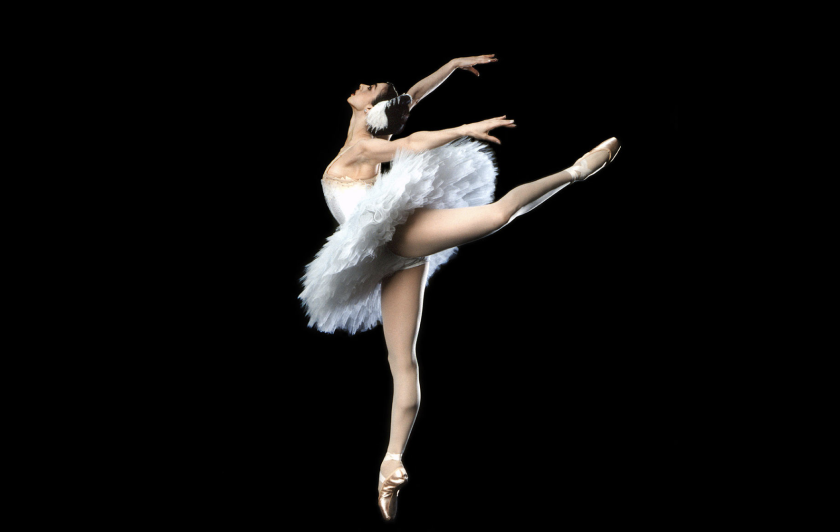


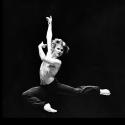
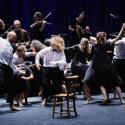
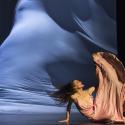
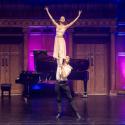
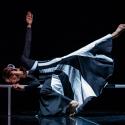
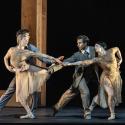
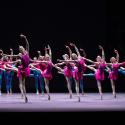
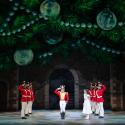
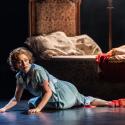

Add comment